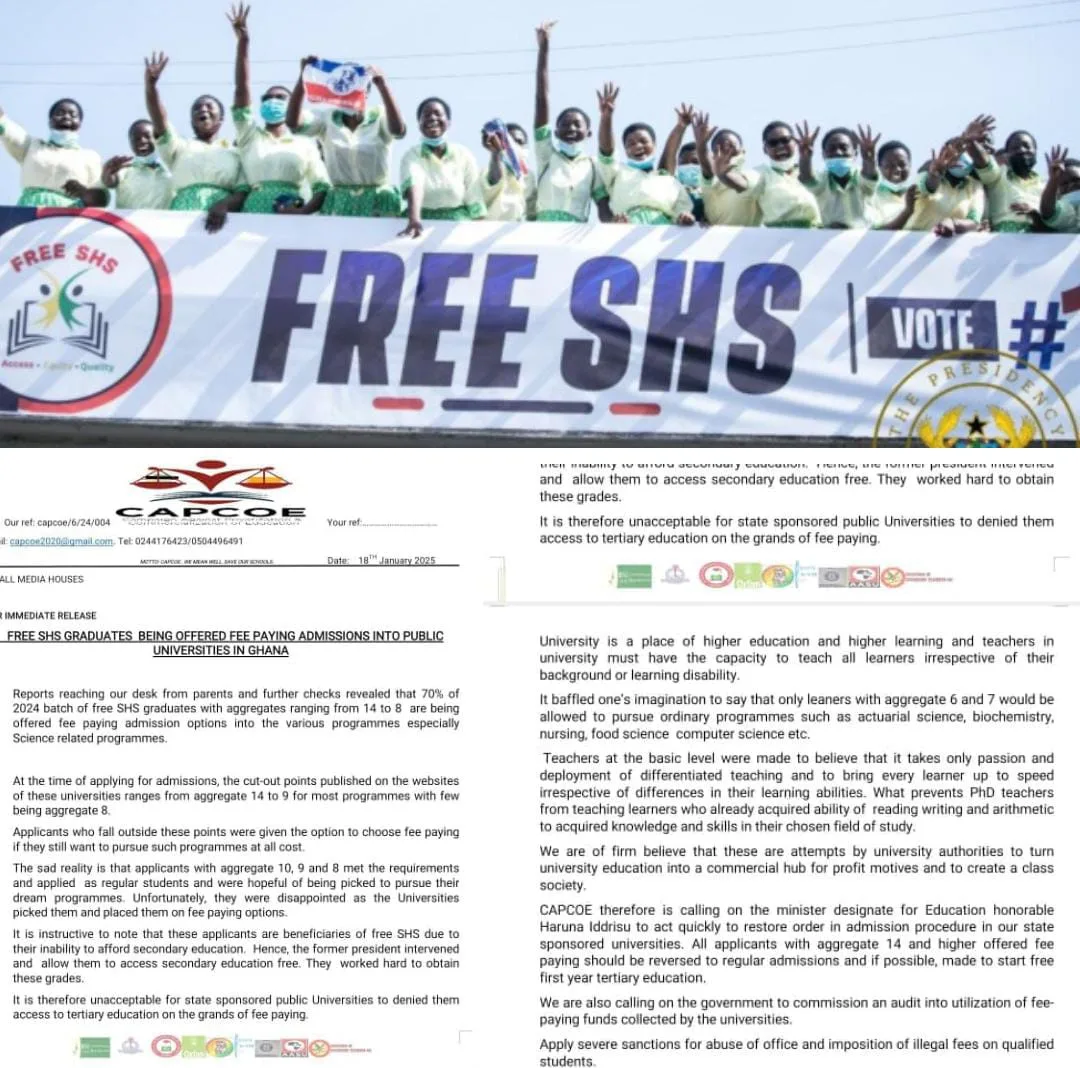The Educate Africa Institute (EAI) is urging the government to reconsider funding the West African Senior School Certificate Examination (WASSCE) registration fees for public school candidates. This call to action is prompted by the significant debts owed to the West African Examinations Council (WAEC), resulting in delays in releasing examination results.
Historically, private candidates haven’t contributed to these debts since their parents pay the registration fees directly.
However, the government’s decision to absorb these costs for public school candidates under the Akufo-Addo-Bawumia administration has left WAEC struggling with unpaid debts.
EAI proposes that requiring WASSCE candidates to pay their registration fees directly could provide a sustainable solution.
This approach would ensure WAEC receives the necessary funds to operate efficiently, deliver timely examination results, and maintain its credibility.
The Institute emphasizes that this solution would alleviate stress on parents and candidates, allowing WAEC to uphold examination standards across the region. While making education accessible is crucial, EAI insists that sustainability and efficiency shouldn’t be compromised.
See the full statement below.
PRESS RELEASE
The Government Must Stop Funding the WASSCE Registration Fees for Public School Candidates to Prevent WAEC Debts – EAI
The Educate Africa Institute (EAI) has called on the government to reconsider its approach to funding the West African Senior School Certificate Examination (WASSCE) registration fees for public school candidates. The Institute has observed with concern the persistent delays in releasing examination results due to the significant debts owed by the government to the West African Examinations Council (WAEC).
Historically, private candidates have not contributed to these debts, as their parents pay the WASSCE registration fees directly. However, under the Akufo-Addo-Bawumia administration, the promise to absorb these costs for public school candidates has left WAEC struggling with unpaid debts. This situation not only hampers the Council’s ability to operate efficiently but also creates unnecessary anxiety among candidates and parents during the prolonged wait for results.
EAI believes that requiring WASSCE candidates to pay their registration fees directly could provide a sustainable solution to this recurring problem. By adopting this measure, WAEC would receive the funds needed to work effectively, ensuring the timely delivery of examination results and avoiding disruptions in its operations.
The Institute emphasizes that this approach would alleviate the undue stress on parents and candidates, who often face uncertainty regarding the outcome of their academic efforts. It would also allow WAEC to maintain its credibility and uphold the standards of the examination system across the region.
EAI recognizes the importance of making education accessible to all but insists that sustainability and efficiency must not be compromised. The organization, therefore, urges the government to review its policy on WASSCE registration fees, taking into account the long-term implications for both WAEC and the education sector.
In conclusion, EAI calls for an open dialogue between the government, WAEC, and stakeholders in education to develop a practical and equitable solution that ensures the timely release of results while safeguarding the interests of Ghanaian students and their families.
Signed:
William Boadi
Executive Director of EAI, Educationist, Political Analyst, and Social Worker.
+233541935106
Anthony Cobbinah
Director of Quality Assurance and Advocacy, EAI.
+233243679469
EAI: EDUCATION AND SOCIAL JUSTICE
About EAI:
The Educate Africa Institute (EAI) is a leading advocate for education and social justice, promoting accessibility, quality, and equity in education across Africa.
Source: TheDailyTrustGh.com



